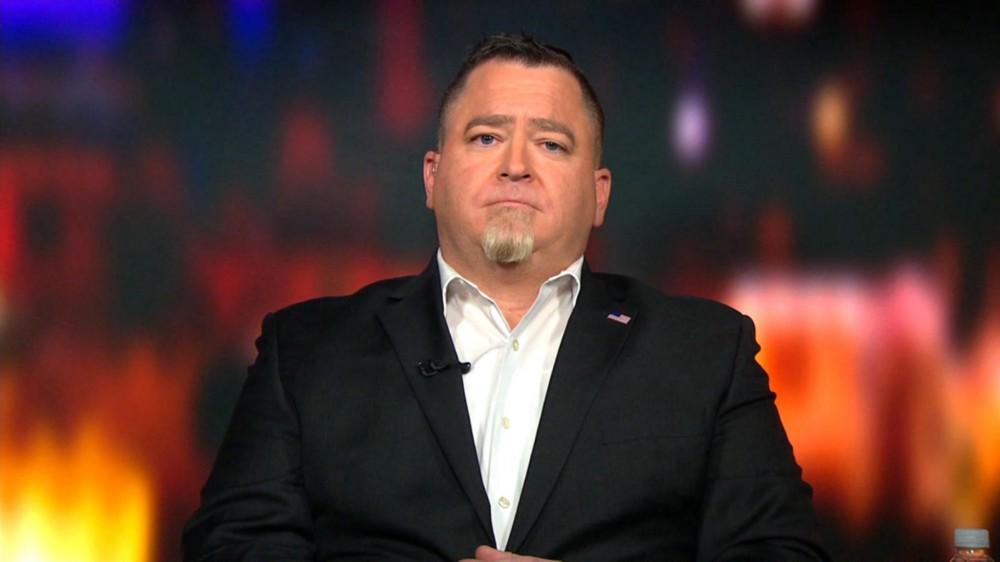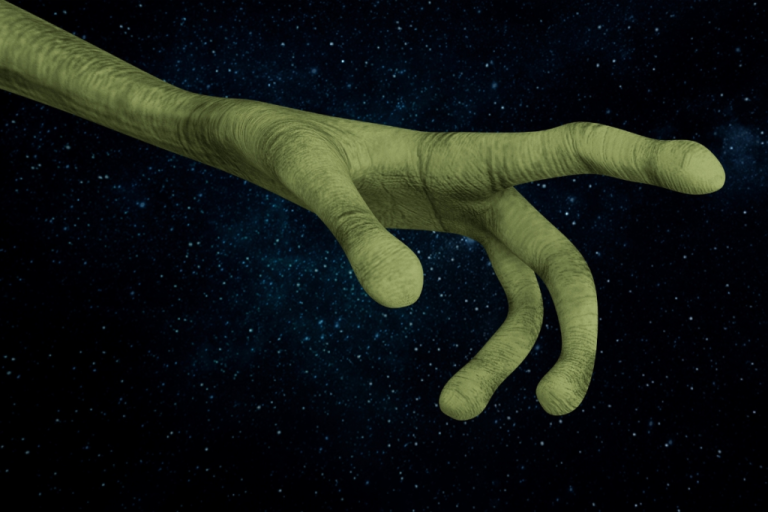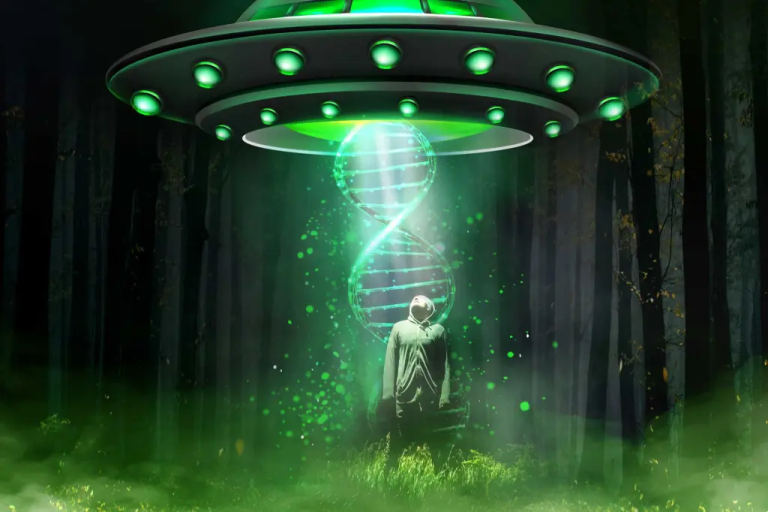
Lue Elizondo’s latest round with Canadian podcaster Curt Jaimungal about UFOs deserves a global audience. Why are the most extraordinary and arguably important conversations on the planet confined to Podcastland?
 He’s here, he’s there, he’s everywhere: Since his appearance on 60 Minutes last spring, former Pentagon official Luis Elizondo has become an interview machine. But is he only expanding the conversation with people who already agree with him?
He’s here, he’s there, he’s everywhere: Since his appearance on 60 Minutes last spring, former Pentagon official Luis Elizondo has become an interview machine. But is he only expanding the conversation with people who already agree with him?
Former Pentagon official Luis Elizondo continued his dance on the pin of his Non-Disclosure Agreement this week and dropped several bombshells, with Curt Jaimungal on his Theories of Everything podcast and also on Thomas Fessler’s Disclosure Tonight show on YouTube.
With Jaimungal, Elizondo carefully hinted that “potentially†the U.S. government has acquired otherworldly biological samples. He also suggested that the government has images of UAPs that appear to show beings inside them. And with Fessler earlier in the week, Elizondo basically came out and — in yet another of those meticulously worded sentences where body language is everything and the glide path between the lines is wide and clear — said he believes the Roswell UFO crash story. “100 percent,†he said.
The first time many Americans saw Elizondo was last summer on 60 Minutes, where he appeared visibly uncomfortable and even irritable taking questions from reporter Bill Whitaker: “Look, Bill, I’m not telling you it doesn’t sound wacky,†he said, sounding exasperated. “What I’m telling you is, it’s real.†He’s mellowed since then and opened up, turning into the Roy Kent of the UFO podcasting circuit (he’s here, he’s there, he’s every-fucking-where) while never coming off as a publicity hound.
Some will argue that he’s over-exposed, but given the awesome significance of what he’s obviously saying, the charge is absurd.
Listening to Elizondo this week, there wasn’t any particular reveal that stood out so much as the totality of everything he’s said (and implied) this year, and the fact that he is saying it in plain view, on-the-record, without his face being draped in shadow and his voice disguised electronically.
So this week, in response to a listener’s question on Theories of Everything, we get this, on-the-record, on-screen statement from a 20-year career military intelligence officer who worked in the Pentagon:
“Have there potentially been biological samples recovered? Yes. I’m not going to expound on that … and be careful when I say that. I’m being purposely very open and vague at the same time, right? What does that mean? Well, it means what it means.â€
Also, when asked if there are photos that show occupants inside “craft,†Elizondo gave us this:
“There are some very compelling photos out there that seem to show something inside, some sort of occupancy, and I’ll leave it at that ….â€
How is it that everyone on the planet isn’t talking about this? How is it even possible for virtually most people to completely ignore this story, if they’re even aware of it? When and how does the reality and mind-bending implications of the phenomenon become impossible to ignore?
How Times Have Changed
In Charles Taylor’s mammoth slab of a book A Secular Age (2007), the Canadian philosopher spends more than 800 pages asking and trying to answer the following question: How did we transition from a world little more than 500 years ago in which it was virtually impossible to not believe in God to a society in which religious belief is merely one of many options? How did that shift in global perception take place?
Religious belief properly falls under the epistemological umbrella of things like “mysticism†and “magic,†modes of thinking that were swept away in by the Scientific Revolution and the Age of Enlightenment. So if we can agree with Arthur C. Clarke’s assertion that any sufficiently advanced technology looks like magic, then UFOs — the most exotic of which are actual, ontologically real things that obviously represent someone’s advanced technology — may well be the hinge on which humanity swings back to something like the lost world Taylor (a Catholic) laments.
At the moment, the hinge is more or less rusted in place, buried under a thick, craggy sediment of secrecy, denial, skepticism and stigma.
Every time we have some groundbreaking bit of news on the UFO beat — a New York Times article, a 60 Minutes segment, a book like Skinwalkers at the Pentagon, a mass sighting like the Phoenix Lights or yet another interview with Elizondo — the hinge gets a drop or two of oil.
Given Elizondo’s extraordinary candor, one wonders what on Earth could possibly be left to say that’s still roped off by a non-disclosure agreement that he hasn’t already talked about, or at least wink-and-nod implied. The security oath shuffle borders on parody at this point:
Do we have a crashed saucer from Roswell?
Sorry, security oath. I gotta be careful.
Do you believe we have a crashed saucer from Roswell?
Yeah!
I’m paraphrasing, but that captures the flavor of many exchanges that wobble along the boundary of the undiscovered classified country. But if nothing else, consider the extraordinary and unsettling response he gave during his first sit-down with Jaimungal, where a listener asked Elizondo what would the world be like if everyone knew what he knew. “Somber,†he replied (which he elaborated on again this week).
For the time being, the most important and thoughtful conversations about UFOs are taking place in Podcastland, which essentially means they’re out of sight and out of mind.
CBS’s YouTube page for 60 Minutes has 1.27 million subscribers, and the May UAP segment has had more than 10 million views; Jaimungal, bless him, has 104,000 subscribers and the latest Elizondo show has been watched 166,393 times. And it’s worth noting that Jaimungal isn’t even doing a UFO-oriented podcast. He’s like a younger, more adventurous version of the American neuroscientist Sam Harris, but by virtue of his age, still in the messy process of forming a perspective … or, like his show’s title, a theory of everything. Topics on his show include topics like free will, consciousness, Buddhism, etc.
If even an hour of one of Elizondo’s marathon conversations with Jaimungal had appeared on 60 Minutes or Frontline, we’d likely be in a very different place right now.
The 60 Minutes interview, in terms of substantive content, was perfunctory and largely benign: Navy pilots are seeing strange, advanced craft when they fly; the government is investigating. The end. Our next story is about … Meanwhile, the good stuff unspools on the podcast circuit, and Elizondo seems incapable of saying no to anyone with a laptop and a Zoom account. He is not paid for interviews, he doesn’t set any ground rules about questions, and he doesn’t ask to see questions in advance. He strikes me as an honest, principled and eminently sane man who has discovered something about the world that is still shaking him up and he desperately wants everyone to know.
The Elephant in the Room
In the last five months, Elizondo has already told the American public and the world everything we need to know to anticipate the hinge breaking free of the rust and then grapple with the staggering implications. The big picture, which is openly discussed within the UFO community but has also been sketched piecemeal in multiple mainstream media outlets, is basically this:
Some supremely advanced life form or intelligence that we do not understand and cannot even prove exists is actively engaged with human affairs and likely has been for decades and probably much longer. They’ve been tracked arriving from deep space, and they sometimes vanish into the ocean. At some point in the 20th century, the U.S. government acquired incontrovertible proof of this but hasn’t officially acknowledged it — despite a veritable parade of ex-military and government insiders, scientists, contractors, etc. (some on the record, some not) saying or hinting that this seemingly crazy story is actually true. The wreckage of a crashed alien craft (which is now politely and openly referred to in print and cable mainstream media outlets as “exotic materialsâ€) is the least of it; now we have (“potentiallyâ€) “biological samples†(read: alien bodies) in the mix as well as “occupants.â€
Elizondo this week again reiterated his pledge that more information will be made public in the coming months and more insiders will come out of the shadows. On this final point, one would be advised to believe him, because this month, another did: James Lacatski, a former Defense Intelligence Agency program manager.
Of course, none of this is news (or the least bit surprising) to anyone who has spent time studying the UFO phenomenon and history. Not even the “Tic Tac†sightings are new; in the mid-20th century, eyewitnesses said they resembled butane tanks or lozenges.
We already know there’s a “there†there that cannot be explained by swamp gas, balloons, ball lightning, drones and Venus and people who just make shit up.
Given that all of this does legitimately represent what Jacques Vallee called a “challenge to science,†it is perhaps unsurprising that skeptics frequently must resort to non-scientific means of dismissing them. Debunkers often dispatch UFO incidents with the quasi-legal strategy of simply raising “reasonable doubt,†like a defense attorney trying to get a guilty client off.
But if it’s permissible to approach scientific anomalies like a lawyer, then the the same episteme is justified when trying to untangle the Earth-bound affair of what the government really knows about UFOs and how they know it.
In the case of UFOs and aliens, we have voluminous anecdotal and documentary evidence and on-the-record testimony by many credible individuals suggesting that the government is sitting on real answers about UFOs — like, the actual hard evidence that people like Neil deGrasse Tyson needs to cross this yawning epistemological Rubicon. So the quasi-legal question becomes: Is all of that enough to merit, say, a search warrant? Or an indictment?
At the very least, is there enough to justify pressing the case, to continue asking questions, to demand Congressional hearings? Is there enough for a newspaper or cable news program editor to turn a reporter loose to do some serious digging?
You’re goddamned right there is.
Inside the UFO Echo Chamber
Back in pre-World Wide Web 1995, a dear friend and newsroom colleague and I were talking about the Internet. I’d just spent time with a person who was already using it, so we were discussing what all this meant, and I’ll never forget what she said.
“It will bring us all together and drive us all apart.â€
She wasn’t exactly what you’d call a technologically savvy person, so I’m still in awe of the fact that she was able to call it as accurately as she did. Insofar as the “Cosmic Watergate†(a phrase coined by Stanton Friedman) of UFOs is concerned, this is how her prophecy played out: Those of us who have long been fascinated by the UFO phenomenon have been brought together … and we stand apart from a broader public that really hasn’t been given sufficient reason to pay sustained attention.
We’re all on #UFOTwitter or Reddit and each other’s blogs and podcasts and webinars in an information ecosystem (which is, to be fair, polluted by a lot of bullshittery and actual fake news) where the arguably most extraordinary and important story of all time is, to crib from Ross Coulthart, in plain sight.
It’s starting to wash up on the shores of mainstream-land (much to the chagrin of Skeptical Inquirer magazine) but it’s not yet a conversation that everyone is having.
Today, we live in a world where most people pay UFOs no mind and among the few who do, given the absence of concrete, universally accepted evidence, many believe there’s no case to be made for aliens at the controls.
It is still possible to not “believe†in UFOs.
But at some point, we’ll see Elizondo or maybe someone else we haven’t even heard about get three hours on a 60 Minutes special edition or a CNN town hall. Maybe something spills out that compels Congress put some skin in the game and hold public hearings. And maybe that puts UFOs in a three or four consecutive news cycles, and then late on a Saturday afternoon The New York Times springs another exclusive that opens it up even more. That prompts more insiders to step forward, the floodgates open, etc.
Maybe then the hinge will snap loose from the constraints of stigma and scientism and humanity will lurch into a paradigm where it is impossible to not believe we’re not alone, and we’ll wonder then why we all weren’t having this conversation all along.





